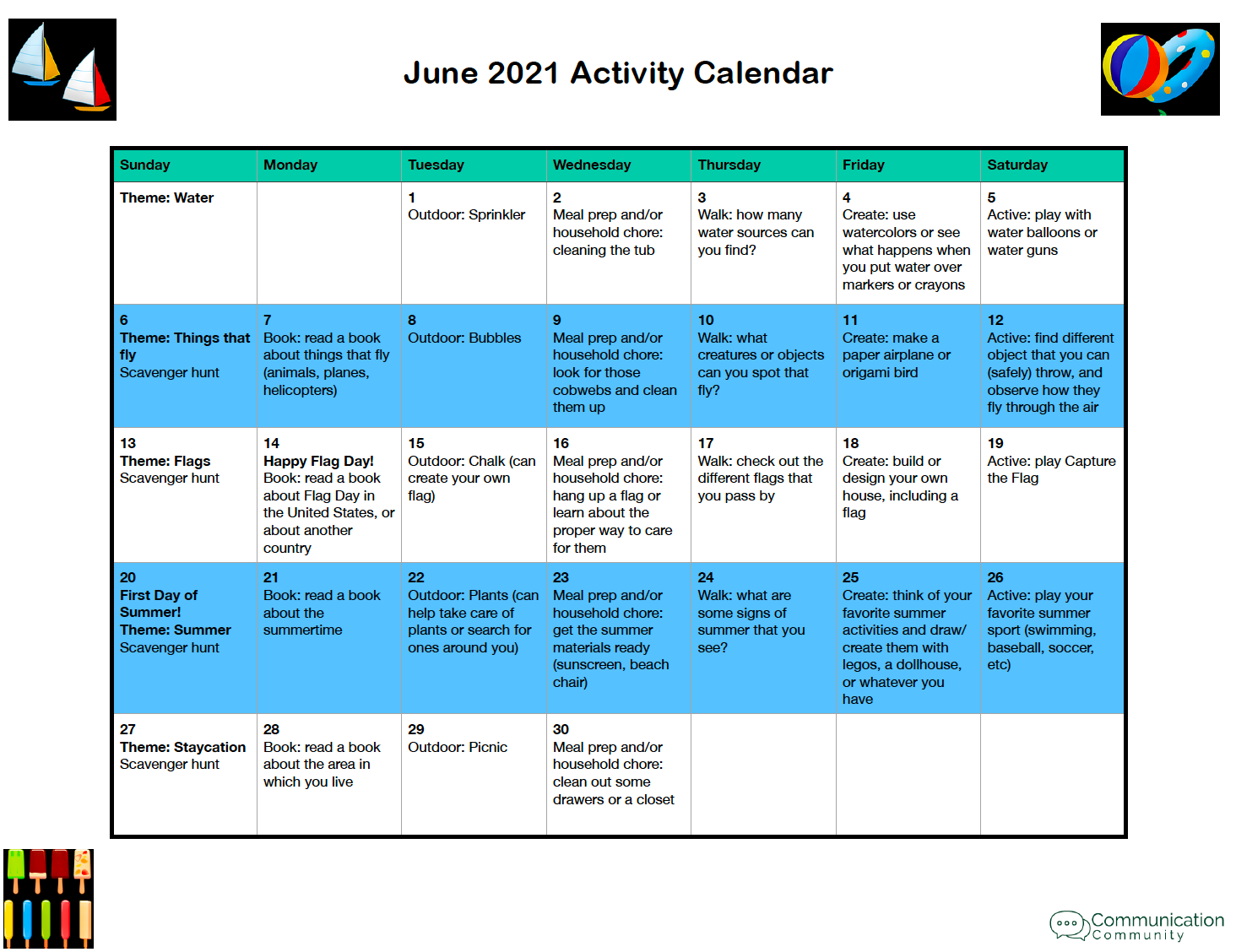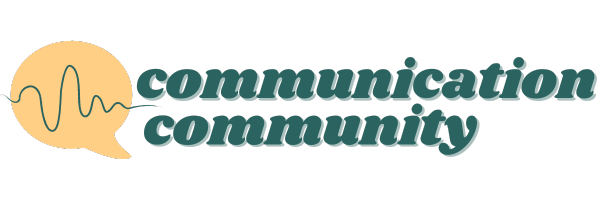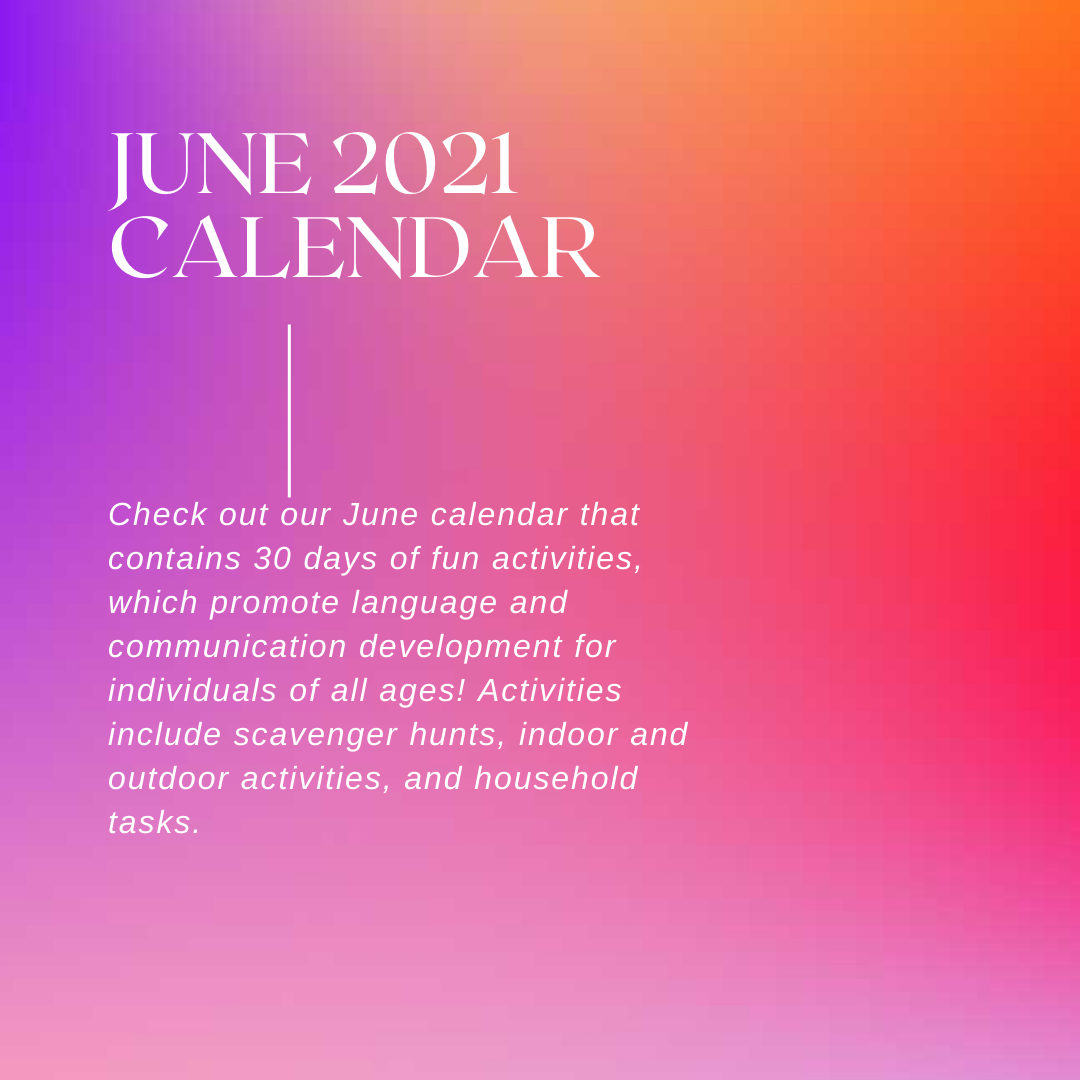We cannot believe it is almost June! Whether you are looking for a way to continue to engage in language development as the school year ends, or you are looking for some fresh ideas, we think you will like this June Activity Calendar.
Our belief is that speech, language, and communication opportunities are EVERYWHERE, and while that is pretty amazing, it can also be overwhelming. Amazing in the sense that there is no lack of ideas for engaging in activities that promote language, but overwhelming in the sense that you may not know where to start. This is why we have re-created our June Activity Calendar. The purpose is to provide ideas for facilitating language that are manageable and flexible.

Using Child-Centered Language Intervention
Child-centered language intervention using indirect language stimulation techniques is one treatment option for children with language delays or disorders. (Note: this can apply to adults as well.) In basic terms this means: the individual engages in a preferred activity, and the caregiver uses a few techniques to help facilitate language development. These techniques include discussing vocabulary related to the activity, expanding what the individual says about it, or rephrasing it in a different way. Other terms for this type of intervention include person-centered approach or client-centered approach.
Brief examples include:
Individual: “I see bird”
Caregiver: “Yes, I see a few birds!”
Individual: “Pink chalk, I make flower.”
Caregiver: “You used pink chalk to draw a flower!”
Providing indirect language stimulation opportunities all day can be difficult when you are juggling a million other things to do; we get it. For this reason, we encourage you to use the activity of the day to try to focus on the techniques we mentioned above, and bonus points if you do it more times throughout the day!
Using the Calendar
Themes
In water week, you can incorporate water vocabulary in your activities. This may include a scavenger hunt where you can search for things/vessels that hold water, read a book about water, and play in a sprinkler. You can clean the tub, wash some dishes, use watercolor paints, and point out everything you see that has water on your walk (clouds, puddles, hoses, etc).
Manageable and flexible
Think of this calendar as a guide for your language learning at home without the structure of traditional intervention! If you do not have bubbles, or your loved one does not like to use chalk, you can be flexible and repeat activities or pick a similar one of interest (e.g. use finger paint instead of chalk). Why buy a treasure chest full of activities when you can use what you have at home? On Wednesdays, we have provided options for helping prepare a meal or completing a household chore as we recognize some individuals are NPO or have dietary restrictions where preparing a meal is not the most appropriate activity.
You can also modify these activities for different individuals. For example, if you are drawing a flag, one individual can draw the outline of the flag and think of a design (more complex), and the other can color it in (more simple). One individual can read some or all the pages in a book, and one individual can point at pictures or turn the page. (Check out our post on involving the whole family here.)



You can download and/or print out the calendar (with bonus language opportunity ideas) for free on our Teachers Pay Teachers page. We are also happy to email it to you- let us know in the comments below or send us an email at communicationcommunityslp@gmail.com.
We hope that you find this calendar useful, engaging, and fun. Let us know how you used it, and if you have any ideas for July!
Citations/further resources:
https://www.asha.org/Practice-Portal/Clinical-Topics/Late-Language-Emergence/
https://www.asha.org/Practice-Portal/Clinical-Topics/Spoken-Language-Disorders/
https://www.asha.org/Practice-Portal/Clinical-Topics/Aphasia/Person-and-Family-Centered-Care/


